ENA - ENA English
Headlines
Public-Private Partnership Agreements Signed
Jul 3, 2025 297
Addis Ababa, July, 3, 2025 (ENA)—A public-private partnership agreements have been signed between seven developers and Ministry of Finance today. The agreements include four affordable housing, two tourism destination, and one health project. During the signing of the agreements, Finance Minister Ahmed Shide said the public-private partnership agreements are part of the government’s initiative as new financing development projects. The private developers that inked the agreement with the ministry were Ice Home Development and Construction PLC, Ovid Chaka Housing Development PLC, Ovid Kings Tower Housing Development PLC, and the Ethiopian Construction Works Corporation. Denbi Lake PLC (MIDROC Ethiopia Group), Awash Falls Resort PLC (Boston Partners), and Cerbalancet, ICL and Pioneer (Consortia) Integrated Diagnostic Service Center Project were also the other signatories. Once the PPP projects are completed and operational, they are expected to have a significant contribution to the nation’s economic and social growth, it was indicated. In relation to this, Prime Minister Abiy Ahmed told the House of People’s Representatives today that "To address the housing shortage, we’ve introduced public, private, and public-private partnerships — an approach not used before." In the past five years, around one million homes have been built with over 265,000 more under construction as the country has also launched rural corridor projects to provide quality housing in rural areas. Efforts to expand housing access in both urban and rural areas will continue, according to the Office of the Prime Minister. Recall that Ethiopia has enacted a new Proclamation No. 1076/2018 facilitating Public-Private Partnership (PPP), recognizing that the private sector is essential to support the country's economic growth and improve the quality of public services, particularly in infrastructure.
Defense Research, Dev’t Prioritized to Build Comprehensive Military Capability in Ethiopia
Jul 3, 2025 295
Addis Ababa, July, 3, 2025 (ENA)—The ongoing draft policy on defense research and development should integrate considerations of artificial intelligence (AI), as well as emerging trends in cyber and technological warfare, emphasized Lieutenant General Yimer Mekonen, Head of Education and Training at the National Defense Force. The Lieutenant General made the remark during a draft national defense research and development policy validation workshop held today aimed at enhancing defense capabilities. The validation workshop, which is organized by Ethiopian Defense War College, brought together military officers, researchers, among other stakeholders. Lieutenant General Yimer further said that the draft policy is of paramount importance to enhance Ethiopia's defense capabilities and ensure that the army is better prepared to address emerging security threats. The General added that taking emerging military technologies into considerations would lay foundation for building a more technologically advanced national defense force backed by locally military innovations. On his part, Brigadier General Bulti Tadesse, Commander of the Defense War College, highlighted the necessity of robust defense research and development that aligns with global standards. He also noted the policy aimed at enhancing the technological capabilities of Ethiopia's defense sector by fostering collaboration between military institutions and academic entities. The Brigadier General emphasized that the draft policy would lay the groundwork for a more innovative and effective national defense that addresses emerging security challenges and foster national development.
Ethiopian Airlines' New Portugal Route Set to Drive Continental Connectivity
Jul 3, 2025 497
Addis Ababa, July, 3, 2025 (ENA)—Ethiopian Airlines’ new Porto route is poised to strengthen continental links that go beyond Ethiopia–Portugal relations, fostering broader cooperation across various domains. In a colorful event attended by ambassadors, ministers, and Ethiopian Airlines Executives at Ethiopian Skylight Hotel, Ethiopian marked the commencement of its new five times weekly passenger service to Porto, Portugal on Wednesday. This new service will include a single stop via Madrid, Spain. The introduction of this flight aims to offer travel options and enhances seamless connectivity for passengers in the area, furthering Ethiopian Airlines' regional expansion across Europe. A stakeholder panel discussion was held today in Porto to mark the launch of Ethiopian Airlines' inaugural passenger flight to the city. The panel discussion primarily focused on leveraging the airline’s operations by deepening economic partnerships. Among the panel participants was Rui Alves, Director of Porto Airport, who noted that the new Ethiopian Airlines flight would serve as a vital link between the two countries across multiple sectors. He stated that today’s panel discussion reflected a shared interest in integrating the new passenger flight with cargo services, noting that key organizations and stakeholders from the cargo sector were actively involved in the dialogue. “This route will bring the connection with the biggest hub in Africa. We will discuss the possibilities and the opportunities to grow on the cargo side. In that meeting, we had several business partners related to the cargo. And what we want to show them is the opportunity to have an aircraft like this one, a bigger craft, a white body, very young, very new aircraft.. So this is a big opportunity for the region to have direct flights, even for cargo,” the director noted. On her part, Karen Strougo, Chief Commercial Officer at Porto Airlines, welcomed the commencement of Ethiopian Airlines’ service to Porto, highlighting its potential to enhance Europe–Africa connectivity across multiple sectors. “We're very happy to be celebrating today the first flight for Ethiopian Airlines here in Porto city, which is our big hub for Portugal and to access Europe, the north of Spain, and to access the continent. We're especially happy because this is a very potent and growing city, with strong industry and strong business capability……. Thus, we are all very optimistic about Ethiopian Airlines,” she revealed. Ethiopian Airlines is one of the fastest-growing carriers in the global aviation industry, Aviation technology expert John George remarked. The expert expressed confidence Ethiopian Airlines will be instrumental in facilitating the effective movement of passengers, particularly Africans, Portuguese, and migrants. “Porto is a very important destination because it's the second growing point of Portugal. I think this is a very important landmark for Ethiopian airlines growth, because Ethiopian airlines will have the opportunity to not only connect the two points, Addis Ababa and Porto. But also, to connect through the rest of the world, as many Portuguese, and many immigrants living in Portugal that want to fly to the Far East, and points of Africa that Ethiopian covers.” Ethiopian Airlines is Africa’s leading carrier and one of the fastest-growing global airline brands, it was learned. The Airlines currently operates over 190 weekly flights to 27 destinations across Asia, including 83 weekly flights to 11 cities in China. With a modern fleet and advanced temperature-controlled, tech-enabled cargo infrastructure, Ethiopian transports nearly 1 million tons of cargo annually across a global network of over 140 destinations.
PM Abiy Reaffirms Commitment to Returning Displaced Person to their Localities
Jul 3, 2025 673
Addis Ababa, July, 3, 2025 (ENA)—Prime Minister Abiy Ahmed reaffirmed the dedication of the government to facilitating the return of displaced citizens to their homes. During the 42nd regular session of the House of People's Representatives, the Prime Minister stated that the Pretoria Peace Agreement has been instrumental in alleviating the sufferings of the people of Tigray, establishing a new political precedent for Ethiopia and beyond. The previously suspended services have been successfully restored, he said, adding the successful establishment of Tigray's Interim regional government. Citing that the displaced persons in Raya and Tselemt have been completely returned to their localities, the prime minister recalled that this development was part of the agreement. However, efforts must be carried out to return the displaced persons of Welkait to their localities to which the government is committed to this cause, Prime Minister Abiy said. To this end, actors from both sides should collaborate, he added. The Prime Minister stressed the need for implementing disarmament, demobilization, and reintegration (DDR) programs for armed groups. The federal government has strong conviction to peacefully resolve the disagreement in Tigray, Prime Minister emphasized, adding that the interest of the government in Tigray is development and development alone. He also underlined that the people of Tigray don’t want war and warned against those who might misconstrue international dynamics as an opportunity for renewed conflict. The Prime Minister emphasized that the desires of the people of Tigray are peace and resolving problems through dialogue. He called upon religious fathers and community elders to mediate peace, taking preemptive action to prevent that the situation in Tigray region of Ethiopia would not resort to conflict, the Prime Minister reiterated.
Ethiopia Seeks Regional Growth, Demands Respect: PM Abiy Ahmed
Jul 3, 2025 374
Addis Ababa, July, 3, 2025 (ENA)— Prime Minister Abiy Ahmed has reaffirmed Ethiopia’s strong commitment to regional cooperation while firmly underscoring the importance of safeguarding the country’s national interests, particularly with regard to securing access to a sea port. Addressing members of parliament during the 42nd regular session of the House of People’s Representatives, the Prime Minister responded to questions concerning the implementation of the 2017 Ethiopian fiscal year budget. The premier emphasized that Ethiopia is eager to strengthen peaceful and developmental partnerships with its neighbors, but stressed that such cooperation must be reciprocal and grounded in mutual respect, especially when it comes to Ethiopia’s strategic priorities. Emphasizing the critical need for port access, Prime Minister Abiy also noted that this goal can be pursued through peaceful dialogue, financial arrangements, and win-win agreements with neighboring states. “Ethiopia’s peace is regional peace,” the Prime Minister stated, warning that instability within Ethiopia would inevitably spill over into the wider Horn of Africa. He also stressed that ensuring Ethiopia’s economic and security interests is not only vital for the country but also serves the broader stability of the region. Reiterating Ethiopia’s respect for the sovereignty of its neighbors, Prime Minister Abiy called on other nations to similarly honor Ethiopia’s legitimate rights, particularly in regard to its maritime interests. Despite the country’s population of over 130 million and its advanced military and technological capabilities, the Prime Minister made it clear that war is not a viable solution to any dispute. “Ethiopia does not consider war an option under any circumstances. We want to develop and live in peace with all our brothers,” he said, affirming the country’s commitment to peaceful coexistence. However, he added that Ethiopia will take appropriate measures to defend its sovereignty if necessary. “There is little that can threaten Ethiopia. We will not be divided, and we have the capacity to protect ourselves,” the Prime Minister concluded.
Politics
Defense Research, Dev’t Prioritized to Build Comprehensive Military Capability in Ethiopia
Jul 3, 2025 295
Addis Ababa, July, 3, 2025 (ENA)—The ongoing draft policy on defense research and development should integrate considerations of artificial intelligence (AI), as well as emerging trends in cyber and technological warfare, emphasized Lieutenant General Yimer Mekonen, Head of Education and Training at the National Defense Force. The Lieutenant General made the remark during a draft national defense research and development policy validation workshop held today aimed at enhancing defense capabilities. The validation workshop, which is organized by Ethiopian Defense War College, brought together military officers, researchers, among other stakeholders. Lieutenant General Yimer further said that the draft policy is of paramount importance to enhance Ethiopia's defense capabilities and ensure that the army is better prepared to address emerging security threats. The General added that taking emerging military technologies into considerations would lay foundation for building a more technologically advanced national defense force backed by locally military innovations. On his part, Brigadier General Bulti Tadesse, Commander of the Defense War College, highlighted the necessity of robust defense research and development that aligns with global standards. He also noted the policy aimed at enhancing the technological capabilities of Ethiopia's defense sector by fostering collaboration between military institutions and academic entities. The Brigadier General emphasized that the draft policy would lay the groundwork for a more innovative and effective national defense that addresses emerging security challenges and foster national development.
PM Abiy Reaffirms Commitment to Returning Displaced Person to their Localities
Jul 3, 2025 673
Addis Ababa, July, 3, 2025 (ENA)—Prime Minister Abiy Ahmed reaffirmed the dedication of the government to facilitating the return of displaced citizens to their homes. During the 42nd regular session of the House of People's Representatives, the Prime Minister stated that the Pretoria Peace Agreement has been instrumental in alleviating the sufferings of the people of Tigray, establishing a new political precedent for Ethiopia and beyond. The previously suspended services have been successfully restored, he said, adding the successful establishment of Tigray's Interim regional government. Citing that the displaced persons in Raya and Tselemt have been completely returned to their localities, the prime minister recalled that this development was part of the agreement. However, efforts must be carried out to return the displaced persons of Welkait to their localities to which the government is committed to this cause, Prime Minister Abiy said. To this end, actors from both sides should collaborate, he added. The Prime Minister stressed the need for implementing disarmament, demobilization, and reintegration (DDR) programs for armed groups. The federal government has strong conviction to peacefully resolve the disagreement in Tigray, Prime Minister emphasized, adding that the interest of the government in Tigray is development and development alone. He also underlined that the people of Tigray don’t want war and warned against those who might misconstrue international dynamics as an opportunity for renewed conflict. The Prime Minister emphasized that the desires of the people of Tigray are peace and resolving problems through dialogue. He called upon religious fathers and community elders to mediate peace, taking preemptive action to prevent that the situation in Tigray region of Ethiopia would not resort to conflict, the Prime Minister reiterated.
Ethiopia Seeks Regional Growth, Demands Respect: PM Abiy Ahmed
Jul 3, 2025 374
Addis Ababa, July, 3, 2025 (ENA)— Prime Minister Abiy Ahmed has reaffirmed Ethiopia’s strong commitment to regional cooperation while firmly underscoring the importance of safeguarding the country’s national interests, particularly with regard to securing access to a sea port. Addressing members of parliament during the 42nd regular session of the House of People’s Representatives, the Prime Minister responded to questions concerning the implementation of the 2017 Ethiopian fiscal year budget. The premier emphasized that Ethiopia is eager to strengthen peaceful and developmental partnerships with its neighbors, but stressed that such cooperation must be reciprocal and grounded in mutual respect, especially when it comes to Ethiopia’s strategic priorities. Emphasizing the critical need for port access, Prime Minister Abiy also noted that this goal can be pursued through peaceful dialogue, financial arrangements, and win-win agreements with neighboring states. “Ethiopia’s peace is regional peace,” the Prime Minister stated, warning that instability within Ethiopia would inevitably spill over into the wider Horn of Africa. He also stressed that ensuring Ethiopia’s economic and security interests is not only vital for the country but also serves the broader stability of the region. Reiterating Ethiopia’s respect for the sovereignty of its neighbors, Prime Minister Abiy called on other nations to similarly honor Ethiopia’s legitimate rights, particularly in regard to its maritime interests. Despite the country’s population of over 130 million and its advanced military and technological capabilities, the Prime Minister made it clear that war is not a viable solution to any dispute. “Ethiopia does not consider war an option under any circumstances. We want to develop and live in peace with all our brothers,” he said, affirming the country’s commitment to peaceful coexistence. However, he added that Ethiopia will take appropriate measures to defend its sovereignty if necessary. “There is little that can threaten Ethiopia. We will not be divided, and we have the capacity to protect ourselves,” the Prime Minister concluded.
Pretoria Agreement Brought Relief to People of Tigray: PM Abiy
Jul 3, 2025 381
Addis Ababa, July 3, 2025 (ENA) -- The Pretoria Agreement has brought relief to Tigray, ending daily loss of life and creating a peaceful path forward, Prime Minister Abiy Ahmed told members of the House of People’s Representatives today. Responding to questions by members of the parliament today, the prime minister said that the Pretoria Agreement has also introduced a new approach, engaging former combatants in the interest of national unity. The Premier noted that the agreement has created a new culture for the people of Ethiopia and other nations, demonstrating that the government prioritizes peace and. Essential services like telecom, banking, and air travel have fully resumed, Abiy said and added that displaced residents of Raya have returned, returns to Wolkait are still pending; the government remains committed to ensuring all displaced people go back to their homes. He further stated rehabilitating and reintegrating former fighters is a priority and supports the region’s interim administration. The federal government continues to pursue peace, but misunderstandings and false hopes of foreign support have led some to wrongly push for renewed conflict, he added. What Tigray needs is peace and dialogue-not war. Religious leaders and elders must help prevent escalation, the Premier stated, and stressed “the government’s position is clear: we seek no conflict and aim to resolve issues without firing a single shot.” The Prime Minister reiterated that the federal government has repeatedly shown its firm commitment to peacefully resolving issues within the Tigray region, explaining that the people of Tigray absolutely do not want war. Abiy urged all Ethiopians, including the people of Tigray, to contribute to national dialogue and lasting peace. The Prime Minister called this a misguided approach, stating that what Tigray needs is peace and the resolution of problems through discussion and dialogue.
Ethiopia Preparing to Inaugurate Largest Hydroelectric Power Plant in Africa
Jul 3, 2025 711
Addis Ababa, July 3, 2025 (ENA) -- Preparations are underway for the official inauguration of the Grand Ethiopian Renaissance Dam (GERD), the largest hydroelectric power plant in Africa, Prime Minister Abiy Ahmed said. Responding to questions by members of the parliament today, the prime minister said “the Grand Ethiopian Renaissance Dam (GERD) is now complete, and we are preparing for its official inauguration.” The dam is expected to be inaugurated early next Ethiopian year. Addressing Egypt and Sudan, the premier emphasized that GERD is not a threat but a shared opportunity, a symbol of regional cooperation and mutual benefit. Moreover, he added that the energy it generates stand will uplift not just Ethiopia, but the entire region. Egypt’s Aswan Dam has never lost a single liter of water due to the GERD, Abiy noted. Likewise, Ethiopia remains committed to ensuring that its growth that does not come at the expense of Egyptian and Sudanese brothers and sisters. “As long as Ethiopia continues to develop and exist, we will collaborate with Egyptian brothers. We have no ill intention; we don’t want Egypt and Sudan to be harmed.” According to the PM, the Government of Ethiopia believes in shared progress, shared energy, and shared water. Prosperity for one should mean prosperity for all, he stressed. Abiy further reaffirmed that Ethiopia remains ready and willing to engage constructively with downstream countries. “We extend an open invitation to the governments and peoples of Egypt, Sudan, and all Nile Basin nations to join us in celebrating this historic milestone, Ethiopia’s renaissance in September.”
Ethiopia’s Peace, Security Challenges Rooted in Misguided Political Thinking—Says PM Abiy
Jul 3, 2025 426
Addis Ababa, July, 3, 2025 (ENA)— Prime Minister Abiy Ahmed stated that the root of Ethiopia’s peace and security challenges lies in misguided political thinking, particularly the spread of ignorance-driven politics. He made these remarks during the 42nd regular session of the House of People’s Representatives, while responding to questions about the implementation of the 2024/25 Ethiopian fiscal year budget. According to Prime Minister Abiy, such misguided political thinking fuels division, incites conflict, and promotes a culture of entitlement detached from genuine effort or contribution. In this regard, the Prime Minister stressed that true wisdom and national progress must be pursued through hard work, education, and productivity. Power struggles driven by violence, force, and rumors threaten peace and democracy, the Prime Minister warned, adding that: “Violence cannot bring lasting victory; it only leads to destruction.” Prime Minister Abiy further explained that poverty, unemployment, and extreme ethnic nationalism continue to fuel unrest. He warned that when this extremism and backwardness are left unaddressed, they pose serious threats to national unity. These internal issues are compounded by foreign interference and provocateurs, which further destabilize the country. To achieve lasting peace, Ethiopians must reject divisive ideologies, confront extremism, and commit to work, education, and unity. Speaking on the role of communities in peacebuilding, the Prime Minister urged citizens to reject acts of violence and killings, emphasizing the importance of collective responsibility in preserving peace. To this effect, the Prime Minister praised the recent stand taken by the people of Amhara—calling for peace and development and declaring “enough is enough”—as a powerful and commendable message to the nation. He emphasized that such a public demand must be met with respect and meaningful action. The Premier also urged citizens to hold leaders and the elites of the country accountable by asking critical questions such as “What have you contributed? Have you paid your taxes? Whom have you served? Are you loyal to the people?” Emphasizing that peace is a collective responsibility, Prime Minister Abiy stated that Ethiopia’s past conflicts were resolved through diligent effort, and the resulting relative peace has paved the way for growth in various spheres including agriculture, mining, and tourism. He emphasized that now is the time to safeguard and strengthen this peace by working together to overcome the remaining challenges.
PM Abiy Responds to Parliamentary Queries on Key National and Economic Matters
Jul 3, 2025 505
Addis Ababa, July 3, 2025 (ENA)—Members of the parliament (MPs) are directing questions to Prime Minister Abiy Ahmed today at the session of the House of People's Representatives, on a spectrum of pressing national issues and economic activities of the country. Abiy presents highlights of the 2024/25 fiscal year budget execution to parliament. Those queries of MPs encompassed peace and security, national reconciliation process, political space, economic reform, the government’s efforts to mitigate inflationary pressures. Furthermore, Members of the House extended appreciation to the government under the leadership of Prime Minister Abiy Ahmed to achieve a durable peace in the country. Particularly, they praised the Pretoria peace accord, marking a pivotal moment in Ethiopia’s political history, offering a new direction away from centuries-old divisions and adversarial politics. According to the parliamentarians, impressive results have been recorded in economic development, environmental protection like—Green Legacy Initiative Program, agricultural productivity, diplomatic efforts to secure access to seaport. In response, Prime Minister Abiy affirmed that despite ongoing challenges, Ethiopia has achieved remarkable and unprecedented progress across multiple sectors.
PM Abiy to Address Parliament on Government’s Performance, Responds to Questions of MPs
Jul 3, 2025 588
Addis Ababa, July 3, 2025 (ENA) -- Today, Prime Minister Abiy Ahmed will speak before Ethiopia’s House of People’s Representatives to deliver the federal government’s performance report for the concluding current fiscal year and outline the directions and priorities for the upcoming budget year. Additionally, the premier will respond to inquiries from parliament members on various issues. In today’s session, the House of People’s Representatives is anticipated to approve the federal government’s proposed budget for the 2018 Ethiopian fiscal year (2025/26), which is scheduled to commence next week. It is to be recalled that the Council of Ministers approved close to 2-trillion Birr budget for the upcoming 2018 Ethiopian Fiscal Year and referred it to the House of People's Representatives on June 5, 2025.
Politics
Defense Research, Dev’t Prioritized to Build Comprehensive Military Capability in Ethiopia
Jul 3, 2025 295
Addis Ababa, July, 3, 2025 (ENA)—The ongoing draft policy on defense research and development should integrate considerations of artificial intelligence (AI), as well as emerging trends in cyber and technological warfare, emphasized Lieutenant General Yimer Mekonen, Head of Education and Training at the National Defense Force. The Lieutenant General made the remark during a draft national defense research and development policy validation workshop held today aimed at enhancing defense capabilities. The validation workshop, which is organized by Ethiopian Defense War College, brought together military officers, researchers, among other stakeholders. Lieutenant General Yimer further said that the draft policy is of paramount importance to enhance Ethiopia's defense capabilities and ensure that the army is better prepared to address emerging security threats. The General added that taking emerging military technologies into considerations would lay foundation for building a more technologically advanced national defense force backed by locally military innovations. On his part, Brigadier General Bulti Tadesse, Commander of the Defense War College, highlighted the necessity of robust defense research and development that aligns with global standards. He also noted the policy aimed at enhancing the technological capabilities of Ethiopia's defense sector by fostering collaboration between military institutions and academic entities. The Brigadier General emphasized that the draft policy would lay the groundwork for a more innovative and effective national defense that addresses emerging security challenges and foster national development.
PM Abiy Reaffirms Commitment to Returning Displaced Person to their Localities
Jul 3, 2025 673
Addis Ababa, July, 3, 2025 (ENA)—Prime Minister Abiy Ahmed reaffirmed the dedication of the government to facilitating the return of displaced citizens to their homes. During the 42nd regular session of the House of People's Representatives, the Prime Minister stated that the Pretoria Peace Agreement has been instrumental in alleviating the sufferings of the people of Tigray, establishing a new political precedent for Ethiopia and beyond. The previously suspended services have been successfully restored, he said, adding the successful establishment of Tigray's Interim regional government. Citing that the displaced persons in Raya and Tselemt have been completely returned to their localities, the prime minister recalled that this development was part of the agreement. However, efforts must be carried out to return the displaced persons of Welkait to their localities to which the government is committed to this cause, Prime Minister Abiy said. To this end, actors from both sides should collaborate, he added. The Prime Minister stressed the need for implementing disarmament, demobilization, and reintegration (DDR) programs for armed groups. The federal government has strong conviction to peacefully resolve the disagreement in Tigray, Prime Minister emphasized, adding that the interest of the government in Tigray is development and development alone. He also underlined that the people of Tigray don’t want war and warned against those who might misconstrue international dynamics as an opportunity for renewed conflict. The Prime Minister emphasized that the desires of the people of Tigray are peace and resolving problems through dialogue. He called upon religious fathers and community elders to mediate peace, taking preemptive action to prevent that the situation in Tigray region of Ethiopia would not resort to conflict, the Prime Minister reiterated.
Ethiopia Seeks Regional Growth, Demands Respect: PM Abiy Ahmed
Jul 3, 2025 374
Addis Ababa, July, 3, 2025 (ENA)— Prime Minister Abiy Ahmed has reaffirmed Ethiopia’s strong commitment to regional cooperation while firmly underscoring the importance of safeguarding the country’s national interests, particularly with regard to securing access to a sea port. Addressing members of parliament during the 42nd regular session of the House of People’s Representatives, the Prime Minister responded to questions concerning the implementation of the 2017 Ethiopian fiscal year budget. The premier emphasized that Ethiopia is eager to strengthen peaceful and developmental partnerships with its neighbors, but stressed that such cooperation must be reciprocal and grounded in mutual respect, especially when it comes to Ethiopia’s strategic priorities. Emphasizing the critical need for port access, Prime Minister Abiy also noted that this goal can be pursued through peaceful dialogue, financial arrangements, and win-win agreements with neighboring states. “Ethiopia’s peace is regional peace,” the Prime Minister stated, warning that instability within Ethiopia would inevitably spill over into the wider Horn of Africa. He also stressed that ensuring Ethiopia’s economic and security interests is not only vital for the country but also serves the broader stability of the region. Reiterating Ethiopia’s respect for the sovereignty of its neighbors, Prime Minister Abiy called on other nations to similarly honor Ethiopia’s legitimate rights, particularly in regard to its maritime interests. Despite the country’s population of over 130 million and its advanced military and technological capabilities, the Prime Minister made it clear that war is not a viable solution to any dispute. “Ethiopia does not consider war an option under any circumstances. We want to develop and live in peace with all our brothers,” he said, affirming the country’s commitment to peaceful coexistence. However, he added that Ethiopia will take appropriate measures to defend its sovereignty if necessary. “There is little that can threaten Ethiopia. We will not be divided, and we have the capacity to protect ourselves,” the Prime Minister concluded.
Pretoria Agreement Brought Relief to People of Tigray: PM Abiy
Jul 3, 2025 381
Addis Ababa, July 3, 2025 (ENA) -- The Pretoria Agreement has brought relief to Tigray, ending daily loss of life and creating a peaceful path forward, Prime Minister Abiy Ahmed told members of the House of People’s Representatives today. Responding to questions by members of the parliament today, the prime minister said that the Pretoria Agreement has also introduced a new approach, engaging former combatants in the interest of national unity. The Premier noted that the agreement has created a new culture for the people of Ethiopia and other nations, demonstrating that the government prioritizes peace and. Essential services like telecom, banking, and air travel have fully resumed, Abiy said and added that displaced residents of Raya have returned, returns to Wolkait are still pending; the government remains committed to ensuring all displaced people go back to their homes. He further stated rehabilitating and reintegrating former fighters is a priority and supports the region’s interim administration. The federal government continues to pursue peace, but misunderstandings and false hopes of foreign support have led some to wrongly push for renewed conflict, he added. What Tigray needs is peace and dialogue-not war. Religious leaders and elders must help prevent escalation, the Premier stated, and stressed “the government’s position is clear: we seek no conflict and aim to resolve issues without firing a single shot.” The Prime Minister reiterated that the federal government has repeatedly shown its firm commitment to peacefully resolving issues within the Tigray region, explaining that the people of Tigray absolutely do not want war. Abiy urged all Ethiopians, including the people of Tigray, to contribute to national dialogue and lasting peace. The Prime Minister called this a misguided approach, stating that what Tigray needs is peace and the resolution of problems through discussion and dialogue.
Ethiopia Preparing to Inaugurate Largest Hydroelectric Power Plant in Africa
Jul 3, 2025 711
Addis Ababa, July 3, 2025 (ENA) -- Preparations are underway for the official inauguration of the Grand Ethiopian Renaissance Dam (GERD), the largest hydroelectric power plant in Africa, Prime Minister Abiy Ahmed said. Responding to questions by members of the parliament today, the prime minister said “the Grand Ethiopian Renaissance Dam (GERD) is now complete, and we are preparing for its official inauguration.” The dam is expected to be inaugurated early next Ethiopian year. Addressing Egypt and Sudan, the premier emphasized that GERD is not a threat but a shared opportunity, a symbol of regional cooperation and mutual benefit. Moreover, he added that the energy it generates stand will uplift not just Ethiopia, but the entire region. Egypt’s Aswan Dam has never lost a single liter of water due to the GERD, Abiy noted. Likewise, Ethiopia remains committed to ensuring that its growth that does not come at the expense of Egyptian and Sudanese brothers and sisters. “As long as Ethiopia continues to develop and exist, we will collaborate with Egyptian brothers. We have no ill intention; we don’t want Egypt and Sudan to be harmed.” According to the PM, the Government of Ethiopia believes in shared progress, shared energy, and shared water. Prosperity for one should mean prosperity for all, he stressed. Abiy further reaffirmed that Ethiopia remains ready and willing to engage constructively with downstream countries. “We extend an open invitation to the governments and peoples of Egypt, Sudan, and all Nile Basin nations to join us in celebrating this historic milestone, Ethiopia’s renaissance in September.”
Ethiopia’s Peace, Security Challenges Rooted in Misguided Political Thinking—Says PM Abiy
Jul 3, 2025 426
Addis Ababa, July, 3, 2025 (ENA)— Prime Minister Abiy Ahmed stated that the root of Ethiopia’s peace and security challenges lies in misguided political thinking, particularly the spread of ignorance-driven politics. He made these remarks during the 42nd regular session of the House of People’s Representatives, while responding to questions about the implementation of the 2024/25 Ethiopian fiscal year budget. According to Prime Minister Abiy, such misguided political thinking fuels division, incites conflict, and promotes a culture of entitlement detached from genuine effort or contribution. In this regard, the Prime Minister stressed that true wisdom and national progress must be pursued through hard work, education, and productivity. Power struggles driven by violence, force, and rumors threaten peace and democracy, the Prime Minister warned, adding that: “Violence cannot bring lasting victory; it only leads to destruction.” Prime Minister Abiy further explained that poverty, unemployment, and extreme ethnic nationalism continue to fuel unrest. He warned that when this extremism and backwardness are left unaddressed, they pose serious threats to national unity. These internal issues are compounded by foreign interference and provocateurs, which further destabilize the country. To achieve lasting peace, Ethiopians must reject divisive ideologies, confront extremism, and commit to work, education, and unity. Speaking on the role of communities in peacebuilding, the Prime Minister urged citizens to reject acts of violence and killings, emphasizing the importance of collective responsibility in preserving peace. To this effect, the Prime Minister praised the recent stand taken by the people of Amhara—calling for peace and development and declaring “enough is enough”—as a powerful and commendable message to the nation. He emphasized that such a public demand must be met with respect and meaningful action. The Premier also urged citizens to hold leaders and the elites of the country accountable by asking critical questions such as “What have you contributed? Have you paid your taxes? Whom have you served? Are you loyal to the people?” Emphasizing that peace is a collective responsibility, Prime Minister Abiy stated that Ethiopia’s past conflicts were resolved through diligent effort, and the resulting relative peace has paved the way for growth in various spheres including agriculture, mining, and tourism. He emphasized that now is the time to safeguard and strengthen this peace by working together to overcome the remaining challenges.
PM Abiy Responds to Parliamentary Queries on Key National and Economic Matters
Jul 3, 2025 505
Addis Ababa, July 3, 2025 (ENA)—Members of the parliament (MPs) are directing questions to Prime Minister Abiy Ahmed today at the session of the House of People's Representatives, on a spectrum of pressing national issues and economic activities of the country. Abiy presents highlights of the 2024/25 fiscal year budget execution to parliament. Those queries of MPs encompassed peace and security, national reconciliation process, political space, economic reform, the government’s efforts to mitigate inflationary pressures. Furthermore, Members of the House extended appreciation to the government under the leadership of Prime Minister Abiy Ahmed to achieve a durable peace in the country. Particularly, they praised the Pretoria peace accord, marking a pivotal moment in Ethiopia’s political history, offering a new direction away from centuries-old divisions and adversarial politics. According to the parliamentarians, impressive results have been recorded in economic development, environmental protection like—Green Legacy Initiative Program, agricultural productivity, diplomatic efforts to secure access to seaport. In response, Prime Minister Abiy affirmed that despite ongoing challenges, Ethiopia has achieved remarkable and unprecedented progress across multiple sectors.
PM Abiy to Address Parliament on Government’s Performance, Responds to Questions of MPs
Jul 3, 2025 588
Addis Ababa, July 3, 2025 (ENA) -- Today, Prime Minister Abiy Ahmed will speak before Ethiopia’s House of People’s Representatives to deliver the federal government’s performance report for the concluding current fiscal year and outline the directions and priorities for the upcoming budget year. Additionally, the premier will respond to inquiries from parliament members on various issues. In today’s session, the House of People’s Representatives is anticipated to approve the federal government’s proposed budget for the 2018 Ethiopian fiscal year (2025/26), which is scheduled to commence next week. It is to be recalled that the Council of Ministers approved close to 2-trillion Birr budget for the upcoming 2018 Ethiopian Fiscal Year and referred it to the House of People's Representatives on June 5, 2025.
Social
PM Abiy Says Significant Agricultural Gains Driving Ethiopia’s Economic Growth
Jul 3, 2025 503
Addis Ababa, July 3, 2025 (ENA) -- Prime Minister Abiy Ahmed has announced the remarkable achievements seen in Ethiopia’s agricultural sector, crediting intensive nationwide efforts that are now significantly contributing to the country’s overall economic growth. During the 42nd regular session of the House of People's Representatives (HPR) today, the Prime Minister addressed questions raised from lawmakers and elaborated the contribution the agricultural sector plays in Ethiopia’s development journey. According to Prime Minister Abiy, Ethiopia recorded an economic growth rate of 8.1 percent last fiscal year and it is projected to grow by 8.4 percent this year. Agriculture remains a key pillar of this performance, serving both as the backbone of the export and as a crucial element in the country’s push for food sovereignty. “When we initiated the reform, our approach was not limited to just one sector such as corridor development, as is sometimes perceived from the outside,” he explained. “Our economic focus has been multisectoral, where agriculture has received particular attention to ensure national food sufficiency.” The agricultural sector is expected to grow by 6.1 percent this year, playing a major role in driving the nation’s economic momentum. The Prime Minister stressed the importance of self-reliance, stating that Ethiopia must overcome poverty through its own efforts rather than relying on aid. This belief, he said, has enabled millions to get out of aid dependency where from the 27 million people who were previously beneficiaries of the government’s safety net program, 23 million have now become self-sufficient due to gains in agricultural productivity. Calling this a major milestone, PM Abiy urged for continued national commitment to eliminate food insecurity and aid dependency entirely. He also emphasized the country’s growing agricultural potential. The area of cultivated land increased from 26 million hectares of land last year to 31.8 million hectares this year, boosting total crop production from 1.2 billion quintal last year to 1.5 billion quintals this year. Much of this progress, he noted, is due to the expansion of irrigation infrastructure, which accounted for about 24.7 percent of the sector’s growth. The prime minister cited some 100 irrigation dams are under construction in the country. The Prime Minister also mentioned the rehabilitation of over 50,000 hectares of previously acidic land, which has now been converted into productive farmland. According to the premier, there have been notable increases in the production of wheat, rice, milk, honey, poultry, and other commodities, are signals of a positive shift toward higher productivity and import substitution. Looking ahead, PM Abiy announced that six new irrigation dams will be inaugurated until the coming September, which are believed to further boosting agricultural output. The Prime Minister said that the country’s agricultural sector is undergoing a meaningful transformation, one that is crucial for lifting the country from dependency to self-sufficiency. If current efforts are sustained and strengthened, he said, agriculture will continue to be a powerful engine for Ethiopia’s economic growth.
Food, Drug Authority Achieves Multiple National and International Accreditations
Jul 3, 2025 387
Addis Ababa, July 3, 2025 (ENA) -- The Ethiopian Food and Drug Authority (EFDA) announced a major expansion of its accredited capabilities, securing recognition from both local and international bodies across several critical operational areas. An official ceremony to mark the achievement was held in the presence of senior government officials, experts, and stakeholders from the health sector. The institution has been accredited in key areas including food inspection and law enforcement, medical device quality control, and medicine quality control. Speaking on the occasion, Minister of Health Dr. Mekdes Daba highlighted the significance of the achievement, describing it as a vital step toward making Ethiopia globally competitive in health and safety standards. She emphasized that adherence to international standards in products and services are essential in today’s global landscape and called on all stakeholders to build on this success and sustain efforts in delivering quality services. Director General of the Authority, Heran Gerba also shared key details of the certifications. She noted that the authority’s Food Inspection and Law Enforcement Office has been accredited by the Ethiopian Accreditation Service in compliance with ISO/IEC 17020:2012. This accreditation ensures that the Authority’s food facility inspections and post-market surveillance meet global standards. She further stated that the EFDA’s Medical Device Quality Control Executive Office has received accreditation from the ANSI Ethiopian Accreditation Service Board (ANAB), affiliated with the American National Standards Institute (ANSI). The accreditation covers quality testing for condoms and gloves, and includes an expanded scope for syringes and rapid diagnostic test kits for malaria, HIV, HBV, and HCV within its Medical Device Testing Laboratory. In addition, the EFDA’s Medicine Quality Control Executive Office has also been awarded ISO/IEC 17025:2017 accreditation from ANAB. This certification confirms that the EFDA’s pharmaceutical quality control laboratory meets all technical and management requirements for 16 pharmaceutical testing parameters. This prestigious certification confirms that our quality control laboratory meets all the requirements for 16 pharmaceutical quality control testing parameters, she underlined. On his part, Ethiopian Accreditation Service General Director Aklilu Getachew affirmed that EFDA has demonstrated strong performance in implementing international control systems. He also called on other sectors to establish regulatory systems that enhance their international competitiveness.
Health Minister Calls for Strengthening Field Epidemiology Workforce to Tackle Global Health Threats
Jul 2, 2025 570
Addis Ababa, July 2, 2025 (ENA) -- The Minister of Health Dr. Mekdes Daba emphasized urgent need to strengthen the field epidemiology workforce to effectively combat global health threats. The 4th Ethiopia Field Epidemiology and Laboratory Training Program (FELTP) and Scientific Conference is underway in Addis Ababa from July 1st to 4th, 2025, at the Adwa Victory Memorial Museum under the theme: “Public Health in a Rapidly Changing World: The Role of the Field Epidemiology Workforce in Health Sector Transformation.” In her opening address to the conference, Dr. Mekdes praised the FELTP program, which trains public health professionals to detect and respond to health emergencies. The minister emphasized that graduates from this program are essential for timely and effective responses to communities. Stating the program's success in building local capacity, which is vital for health security, the minister stressed that "learning by doing" approach allows trainees to engage directly in outbreak investigations and data analysis. Dr. Mekdes also affirmed the government's commitment to ongoing professional development and the integration of research into practice. She also noted the growing role of digital technology and data management in epidemiology, encouraging innovation in surveillance and response. The minister noted that field epidemiologists must prepare themselves for new challenges as we move post COVID-19, mentioning that various other infectious and non-infectious diseases have arisen. Kora Tushune, State Minister of Education, stated that the existing health system cannot be improved merely by closing borders. He added it requires integration into the health system, and a health curriculum that aligns with international standards is essential. Ethiopia is making every effort to enhance and develop training facilities that align with global standards, suited to present circumstances and can address various health-related challenges, he said. Director General of the Ethiopian Public Health Institute (EPHI), Mesay Hailu characterized the Ethiopian epidemiology and laboratory training program as a pivotal initiative aimed at equipping public health professionals with the skills to address real public health challenges through epidemiological methods. He stated that the program has strengthened public health systems and security by enabling faster responses to health concerns. The program facilitated informed decision-making through research and investigation, he added. Patrick Okumu Abok, World Health Organization’s (WHO) Team Leader for the Emergency Preparedness and Response Cluster in Ethiopia noted that the initiative was established to improve emergency health response standards. According to him, the program was designed to provide practical training in field epidemiology, which has led to a significant progress in Ethiopia's fight against infectious diseases such as cholera, measles, and malaria. The conference showcased Ethiopia's commitment to advancing public health amid global challenges. Participants of the conference included representatives from WHO, Africa CDC, donors, partner universities and colleges, as well as private and non-governmental health organizations to foster collaborations, and tackle pressing issues such as climate change and digital health.
Ethiopia Taking Bold Steps to Expand Cancer Treatment, Research, and Radiation Therapy: DPM Temesgen Tiruneh
Jun 30, 2025 949
Addis Ababa, June 30, 2025 (ENA) --- Deputy Prime Minister Temesgen Tiruneh has affirmed that Ethiopia is taking bold, strategic steps to enhance access to cancer treatment, research, and radiation therapy as part of its broader commitment to strengthening the national healthcare system. Speaking at an international conference co-hosted by the Ministry of Health and the International Atomic Energy Agency (IAEA), themed “Rays of Hope,” the Deputy Prime Minister outlined Ethiopia’s vision for a more responsive, inclusive, and technology-driven health sector. The event, held at the African Union Conference Hall in Addis Ababa, was attended by IAEA Director General Rafael Mariano Grossi, Minister of Health Mekdes Daba, diplomats, ambassadors, and key stakeholders in global health. In his keynote address, Temesgen emphasized the evolving global health landscape and Ethiopia’s determination to build a resilient healthcare system. He cited the Health Extension Program as a major success story, attributing improved service delivery to a growing trained health professional. The deputy prime minister noted that ongoing efforts to integrate advanced technologies into cancer treatment and ensure their safe use under a robust regulatory framework. Expanding radiation therapy through the peaceful use of nuclear technology, he said, will enhance early cancer diagnosis and ultimately save lives. Beyond cancer care, he also spotlighted the broader health impact of Ethiopia’s Green Legacy Initiative, linking environmental sustainability to improved public health outcomes. The deputy prime minister called on development partners to play an active role in shaping global health systems, urging contributions that go beyond financial assistance. Minister of Health Mekdes Daba, on her part, stressed Ethiopia’s commitment to scaling up radiotherapy services, with new cancer treatment centers under construction in multiple cities. A major focus of the expansion is the early detection of cancer, particularly among children, she said, noting plans to establish satellite clinics dedicated to pediatric oncology. Ethiopia is updating its National Cancer Control Plan, aiming to strengthen cancer prevention, screening, treatment, and palliative care, while also addressing financial barriers that hinder access to services, the minister emphasized. IAEA Director General Rafael Mariano Grossi described cancer as one of the leading causes of death globally, particularly in low- and middle-income countries. Through the “Rays of Hope” initiative, he said, the IAEA is working to expand access to radiotherapy and diagnostic imaging in over 20 member states that currently lack such services. “Countless individuals living with cancer today have little or no access to treatment. Through Rays of Hope, we are committed to changing that reality,” Grossi stated. State Minister of Health Dereje Duguma also presented Ethiopia’s progress in cancer control, including the launch of the National Cancer Control Plan 2025–2029, aimed at improving access to diagnostic and treatment services. He also noted the ongoing construction of new radiotherapy centers in Gondar, Hawassa, Harar, and Mekelle, which will complement the existing facilities in Addis Ababa. The state minister also stated the establishment of a comprehensive oncology center through a public-private partnership, and reaffirmed Ethiopia’s dedication to improving childhood cancer care through specialized clinics, professional training, and early detection programs.
Economy
Public-Private Partnership Agreements Signed
Jul 3, 2025 297
Addis Ababa, July, 3, 2025 (ENA)—A public-private partnership agreements have been signed between seven developers and Ministry of Finance today. The agreements include four affordable housing, two tourism destination, and one health project. During the signing of the agreements, Finance Minister Ahmed Shide said the public-private partnership agreements are part of the government’s initiative as new financing development projects. The private developers that inked the agreement with the ministry were Ice Home Development and Construction PLC, Ovid Chaka Housing Development PLC, Ovid Kings Tower Housing Development PLC, and the Ethiopian Construction Works Corporation. Denbi Lake PLC (MIDROC Ethiopia Group), Awash Falls Resort PLC (Boston Partners), and Cerbalancet, ICL and Pioneer (Consortia) Integrated Diagnostic Service Center Project were also the other signatories. Once the PPP projects are completed and operational, they are expected to have a significant contribution to the nation’s economic and social growth, it was indicated. In relation to this, Prime Minister Abiy Ahmed told the House of People’s Representatives today that "To address the housing shortage, we’ve introduced public, private, and public-private partnerships — an approach not used before." In the past five years, around one million homes have been built with over 265,000 more under construction as the country has also launched rural corridor projects to provide quality housing in rural areas. Efforts to expand housing access in both urban and rural areas will continue, according to the Office of the Prime Minister. Recall that Ethiopia has enacted a new Proclamation No. 1076/2018 facilitating Public-Private Partnership (PPP), recognizing that the private sector is essential to support the country's economic growth and improve the quality of public services, particularly in infrastructure.
Ethiopian Airlines' New Portugal Route Set to Drive Continental Connectivity
Jul 3, 2025 497
Addis Ababa, July, 3, 2025 (ENA)—Ethiopian Airlines’ new Porto route is poised to strengthen continental links that go beyond Ethiopia–Portugal relations, fostering broader cooperation across various domains. In a colorful event attended by ambassadors, ministers, and Ethiopian Airlines Executives at Ethiopian Skylight Hotel, Ethiopian marked the commencement of its new five times weekly passenger service to Porto, Portugal on Wednesday. This new service will include a single stop via Madrid, Spain. The introduction of this flight aims to offer travel options and enhances seamless connectivity for passengers in the area, furthering Ethiopian Airlines' regional expansion across Europe. A stakeholder panel discussion was held today in Porto to mark the launch of Ethiopian Airlines' inaugural passenger flight to the city. The panel discussion primarily focused on leveraging the airline’s operations by deepening economic partnerships. Among the panel participants was Rui Alves, Director of Porto Airport, who noted that the new Ethiopian Airlines flight would serve as a vital link between the two countries across multiple sectors. He stated that today’s panel discussion reflected a shared interest in integrating the new passenger flight with cargo services, noting that key organizations and stakeholders from the cargo sector were actively involved in the dialogue. “This route will bring the connection with the biggest hub in Africa. We will discuss the possibilities and the opportunities to grow on the cargo side. In that meeting, we had several business partners related to the cargo. And what we want to show them is the opportunity to have an aircraft like this one, a bigger craft, a white body, very young, very new aircraft.. So this is a big opportunity for the region to have direct flights, even for cargo,” the director noted. On her part, Karen Strougo, Chief Commercial Officer at Porto Airlines, welcomed the commencement of Ethiopian Airlines’ service to Porto, highlighting its potential to enhance Europe–Africa connectivity across multiple sectors. “We're very happy to be celebrating today the first flight for Ethiopian Airlines here in Porto city, which is our big hub for Portugal and to access Europe, the north of Spain, and to access the continent. We're especially happy because this is a very potent and growing city, with strong industry and strong business capability……. Thus, we are all very optimistic about Ethiopian Airlines,” she revealed. Ethiopian Airlines is one of the fastest-growing carriers in the global aviation industry, Aviation technology expert John George remarked. The expert expressed confidence Ethiopian Airlines will be instrumental in facilitating the effective movement of passengers, particularly Africans, Portuguese, and migrants. “Porto is a very important destination because it's the second growing point of Portugal. I think this is a very important landmark for Ethiopian airlines growth, because Ethiopian airlines will have the opportunity to not only connect the two points, Addis Ababa and Porto. But also, to connect through the rest of the world, as many Portuguese, and many immigrants living in Portugal that want to fly to the Far East, and points of Africa that Ethiopian covers.” Ethiopian Airlines is Africa’s leading carrier and one of the fastest-growing global airline brands, it was learned. The Airlines currently operates over 190 weekly flights to 27 destinations across Asia, including 83 weekly flights to 11 cities in China. With a modern fleet and advanced temperature-controlled, tech-enabled cargo infrastructure, Ethiopian transports nearly 1 million tons of cargo annually across a global network of over 140 destinations.
Ethiopia's Multisectoral Economic Growth Would Surpass 8.4 pc Projection: PM Abiy
Jul 3, 2025 404
Addis Ababa, July, 3, 2025 (ENA)— Ethiopia is on track to significantly surpass its projected 8.4 percent economic growth for the current fiscal year, Prime Minister Abiy Ahmed revealed. The PM reported that Ethiopia's macroeconomic reform and the "Homegrown Reform" initiatives have yielded results beyond expectations. Responding to questions by members of the parliament today, the prime minister stated that despite a landscape of extensive global challenges, Ethiopia achieved a robust 8.1 percent economic growth last year, and this year's performance is anticipated to surpass the initial targets, signaling a time of Ethiopia's resurgence. The Prime Minister attributed this exceptional performance to multisectoral milestones made across several key sectors. He specifically highlighted the multisectoral progress seen in agriculture, industry, mining, the service sector, and finance as pivotal to the country's economic momentum. Delving into details of each sector, the agricultural sector registered 6.1 percent growth and it is expected to show significant growth. The nation has seen 23 million Ethiopians successfully graduated from the safety net program, underscoring significant progress in food security and rural development. The prime minister stated that the industrial sector, a crucial contributor to overall economic expansion, was projected to grow by 12.8 percent. Under the "Ethiopia Tamirt" (Made in Ethiopia) initiative, the capacity of the manufacturing factories has impressively risen from 47 percent few years ago to 65 percent, he said, adding the cement manufacturing sector alone has grown by a notable growth of 16 percent in production. The mining sector, particularly gold exports, has witnessed a dramatic surge, according to the primer. He also said from just 4 tons last year, gold exports have soared to 37 tons this year, translating into a substantial revenue jump from 300 million USD to 3.5 billion USD. The service sector has registered 8.1 percent growth this year, buoyed by a thriving tourism industry. Ethiopia successfully hosted over 150 international conferences, attracting 1.3 million tourists, Prime Minister Abiy elaborated. He added that this growth is largely credited to improved visa processing, the expansion of hotels, the development of new destination sites, and corridor development. Ethiopian Airlines, a national flag carrier, further bolstered connectivity by launching flights to an additional 13 destinations this year, transporting an impressive 19 million passengers. According to the Prime Minister, the financial sector has also experienced a significant revitalization, with loans increasing by 75 percent this year alone. A landmark achievement in digital finance has seen the number of mobile banking customers reach 55 million within three years. For the first time in Ethiopia's history, digital transactions have eclipsed cash transactions, reaching a staggering 12.5 trillion Birr, PM Abiy said. Furthermore, 11 million small scale borrowers collectively accessed 24.5 billion Birr loans through virtual platforms. He also elaborated that the performance of Ethiopia's foreign reserve has been particularly strong. Exports, initially planned for 5.1 billion USD, have exceeded 8.1 billion USD this year, a significant leap from last year's 3.8 billion USD. This represents an increase of over 3 billion USD dollar from the target and more than double last year's performance, PM Abiy Ahmed said. According to him, remittance inflows have also been robust, exceeding 7 billion USD. The country successfully attracted 4 billion USD in Foreign Direct Investment (FDI), and the service sector alone generated 8.3 billion USD in foreign exchange. Cumulatively, the total foreign exchange obtained from all sectors, including loans and aid, reached 32 billion USD this year, a considerable increase from 24 billion USD last year. The trade balance deficit has also improved by 4 billion USD, and for the first time in over a decade, the balance of payments has become positive. While imports amounted to 19 billion USD, inflation showed a moderate improvement, he said. Regarding global conditions and aid, the Prime Minister acknowledged that the global trade system has been disrupted by pandemic and wars and unforeseen circumstances.
Ethiopia Preparing to Inaugurate Largest Hydroelectric Power Plant in Africa
Jul 3, 2025 711
Addis Ababa, July 3, 2025 (ENA) -- Preparations are underway for the official inauguration of the Grand Ethiopian Renaissance Dam (GERD), the largest hydroelectric power plant in Africa, Prime Minister Abiy Ahmed said. Responding to questions by members of the parliament today, the prime minister said “the Grand Ethiopian Renaissance Dam (GERD) is now complete, and we are preparing for its official inauguration.” The dam is expected to be inaugurated early next Ethiopian year. Addressing Egypt and Sudan, the premier emphasized that GERD is not a threat but a shared opportunity, a symbol of regional cooperation and mutual benefit. Moreover, he added that the energy it generates stand will uplift not just Ethiopia, but the entire region. Egypt’s Aswan Dam has never lost a single liter of water due to the GERD, Abiy noted. Likewise, Ethiopia remains committed to ensuring that its growth that does not come at the expense of Egyptian and Sudanese brothers and sisters. “As long as Ethiopia continues to develop and exist, we will collaborate with Egyptian brothers. We have no ill intention; we don’t want Egypt and Sudan to be harmed.” According to the PM, the Government of Ethiopia believes in shared progress, shared energy, and shared water. Prosperity for one should mean prosperity for all, he stressed. Abiy further reaffirmed that Ethiopia remains ready and willing to engage constructively with downstream countries. “We extend an open invitation to the governments and peoples of Egypt, Sudan, and all Nile Basin nations to join us in celebrating this historic milestone, Ethiopia’s renaissance in September.”
Technology
Some 40 Professionals of NISS Receive Int'l Certifications on Aviation Security Quality Control, Risk Management
Jul 2, 2025 749
Addis Ababa, July 2, 2025 (ENA) -- Forty professionals from the National Intelligence and Security Service (NISS), trained in Aviation Security Quality Control and Risk Management, have obtained international certifications. The organization tasked with supervising the comprehensive aviation security operations in Ethiopia has partnered with the International Civil Aviation Organization (ICAO) to grant international certification to 40 individuals who have undergone training in aviation security quality control and aviation risk management, NISS stated in a press release it sent to ENA. It is worth noting that after twelve years, ICAO conducted an audit of Ethiopia's aviation security practices and confirmed that there are no security issues within the country. Subsequently, leveraging the positive relationship and collaboration established with the Civil Aviation Security Main Department of NISS, training was held for the first time in Ethiopia from June 16 to July 1, 2025, facilitated by experts from ICAO. The trainers from the ICAO indicated that the international certification enables the airline to perform aviation security quality control operations in all nations where it operates, affirming that the professionals have successfully completed the training, NISS stated in a press release. It further emphasized that the knowledge acquired in the training will not only allow the institution to execute its national mission with high level of efficiency, but it can also be regarded as a notable indication of the special focus Ethiopia has been placing on the aviation security sector. The responsibility for implementing robust quality control and ensuring preparedness for aviation security lies with each member state of the International Civil Aviation Organization. This approach will guarantee the safety of the aviation sector in line with international standards, NISS underlined. The knowledge, skills, and mindset acquired through the training will significantly contribute to the vision and overall institutional strategy aimed at establishing a global presence in the aviation security field, thereby enhancing the competitiveness of Ethiopian Airlines and securing national advantages, the press release stated.
Digital Ethiopia 2025 Registers Significant Progress in Nat'l Digital Transformation: Minister
Jul 1, 2025 713
Addis Ababa July 1, 2025 (ENA) -- The Digital Ethiopia 2025 Initiative has delivered significant progress since its implementation over the past five years, Innovation and Technology Minister Belete Molla said. In an exclusive interview with ENA, the minister emphasized that sustainable national development depends on a strong foundation of science, technology, and innovation. In this regard, Ethiopia has made a notable stride by establishing a comprehensive legal framework and a national digital strategy aimed at transitioning into a digital economy. According to the minister, infrastructure that supports digital transformation is now actively in use. The Digital Ethiopia 2025 Strategy has been implemented in alignment with the country’s Homegrown Economic Reform Agenda, the 10-Year Development Plan, and African Union’s Digital Transformation Strategy. The current five-year strategy will conclude next month, and preparations are underway for a new strategy extending through 2030, the minister added. Among the key achievements of the initiative over the past five years include the expansion of the digital payment system, digital services, and making digital identity accessible. Belete pointed out the launch of Mesob, a One-Stop Digital Service Center, as a major milestone in this respect. The platform consolidates multiple government services into a single digital portal, improving efficiency and accessibility for users, he stated. The minister added that the One-Stop Service model is now being expanded to regional cities to ensure that citizens across the country benefit from digital services.
Academy Becoming Preferred Training Hub for Africa: Ethiopian Civil Aviation Training Academy
Jul 1, 2025 606
Addis Ababa, July 1, 2025 (ENA) - The Ethiopian Civil Aviation Training Academy is increasingly becoming the top choice for numerous African countries seeking aviation training, Acting Academy Director of Leulseged Gulelat told ENA. According to the acting director, the academy is producing skilled professionals crucial for the success of aviation industry. He further stated that the training academy has been deploying qualified aviation experts in various regions of the country in fields such as air traffic control, communication and navigation surveillance (CNS) for many years. This year alone, the academy has provided comprehensive theoretical and practical training for more than 86 professionals, and deployed them to work. Leulseged revealed that the academy's training extends beyond Ethiopia, offering effective training programs to neighboring countries and other African nations, thereby increasing its demand and reputation. He specifically mentioned the recent training it offered to trainees from Djibouti, Somalia, and Comoros. A growing number of African countries are requesting training at the Ethiopian Civil Aviation Training Academy, making it their preferred institution, the acting director added. Underscoring the academy's strong reputation and acceptance across Africa, Leulseged said the academy is focused on various initiatives to further connect the region. Betelehem Molla, an instructor at the academy and chief air traffic controller on her part stated that the training provided aligns with the current standards of the global aviation industry. She explained that the practical and theoretical training equips trainees with sufficient hands-on knowledge, making them highly effective in the aviation sector.
African Leaders Urge Nuclear Energy Adoption to Drive Growth
Jul 1, 2025 653
Addis Ababa, July 1, 2025 (ENA) -- Participants of African delegates at the Nuclear Energy Innovation Summit for Africa (NEISA 2025) underway in the Rwandan capital of Kigali called for the accelerated adoption of nuclear energy to meet the continent's rising energy demand, support industrialization, and drive sustainable development. As the continent's population is expected to exceed 3 billion in the next four decades, leaders stressed the importance of clean, reliable and scalable energy, particularly nuclear power. "The future of the African energy landscape will continue to be driven by increasing energy demand and population growth," said Rwandan Prime Minister Edouard Ngirente during the opening ceremony. The Prime Minister stressed the significance of uniting African nations in adopting renewable and environmentally friendly energy sources. He underscored their potential to fast-track development milestones while preserving the environment. Ngirente noted that 600 million Africans currently lack access to electricity. He highlighted nuclear energy as a key sustainable and non-polluting resource that can play a transformative role in boosting energy access and addressing climate challenges. The Prime Minister called on African leaders to seize the opportunities offered by nuclear technologies, emphasizing the importance of establishing frameworks that can accelerate growth and foster inclusive development across the continent. Running through Tuesday, the summit seeks to elevate nuclear energy as a key pillar of Africa's sustainable development. NEISA 2025 is organized in collaboration with key international institutions, including the International Atomic Energy Agency, United Nations Economic Commission for Africa, Nuclear Energy Agency, World Nuclear Association, and leading regional financial institutions. This summit brought together policymakers, energy leaders, and nuclear experts from over 40 countries to discuss developing small modular nuclear power plants (SMRs/MMRs). These cutting-edge facilities aim to drive energy self-sufficiency, expand access to clean electricity, combat climate change, and further industrial growth across the continent.
Sport
Great Run that Highlights Sports Tourism Potential in Ethiopia to Take Place in Bokoji City
May 16, 2025 5350
Addis Ababa, May 16, 2025 (ENA) --- The Ethio Telecom Great Run will take place in Bokoji, a city globally recognized as the birthplace of numerous elite Ethiopian athletes, on May 25, 2025. The event marks the 3rd city race in the "'Discover Ethiopia Classics" series in a collection of 4 races planned to take place in regional cities. Briefing the media today, Tourism State Minister Endegena Abebe said the government's strategic vision is to position Bokoji, a city globally recognized as the birthplace of numerous elite Ethiopian athletes, as a central hub for sports tourism development. "Our core aim is to leverage the power of athletics to drive economic development in areas like Bokoji," he stated, highlighting plans to significantly boost investment in sports tourism, particularly within the hospitality sector. He articulated the ambition for Bokoji to evolve into a renowned destination akin to Eldoret in Kenya, which is celebrated for both its athletic prowess and thriving tourism industry. Culture and Sport Tourism State Minister, Mekuye Mohammed, noted Ethiopia's considerable untapped potential in benefiting from the sport sector, stressing the need for dedicated efforts in this regard. On his part, Bokoji Deputy Mayor Bezu Abebe affirmed the city's readiness to welcome participants and guests. He said a total of three thousand participants are expected to attend the event and athletes from ten countries to take part in the run.
Ethiopian Athletes Win Half Marathon at 5th EAPCCO Sports Competition
May 2, 2025 5842
Addis Ababa, May 2, 2025 (ENA) -- Ethiopian athletes celebrated victories in both the men's and women's half marathon events at the 5th Eastern Africa Police Chiefs Cooperation (EAPCCO) Sports Competition. The event, held to commemorate the 116th anniversary of the Ethiopian Police, brought together police athletes from Ethiopia, Kenya, Tanzania, and Djibouti. The half marathon, starting and finishing at Summit Square, showcased a dominant performance by the Ethiopian team, which secured all three podium positions in both races. In the men’s competition, Addisu Gobena claimed first place, with Simatchew Wolde taking second and Balew Yehune finishing third. In the women’s event, Meselech Alemayehu won gold, followed by Gadisi Mulu in second place and Shuko Gamamo in third. Assistant Commissioner Markos Genet, the Coordinator of the EAPCCO Sports Competition, highlighted that the event featured six sports: athletics, boxing, target shooting, darts, taekwondo, and handball. He stressed that the competition's goal is to promote unity and strengthen collaboration among police forces in the East African region. Addisu Gobena and Meselech Alemayehu, the half marathon winners, credited their success to rigorous training. Addisu emphasized the high level of competition, stating that many competitive athletes participated in the race, and expressed his happiness at being a winner among them. Kenyan police officer Ruguru also spoke positively about the event, stating, “Everything is very good. The competition between Ethiopia and Kenya was anticipated. It provided me with valuable experience for future preparation, and I am very pleased about it.”
Ethiopia’s Police Guardian of Law, Symbol of Excellence in Sports: DPM
Apr 28, 2025 7685
Addis Ababa, April 28, 2025 (ENA) -- Ethiopia’s Police Force is not only a guardian of law and order; it is also a symbol of excellence in sports, Deputy Prime Minister Temesgen Tiruneh said. The 5th edition of the East Africa Police Chiefs Cooperation Organization (EAPCCO) Games is underway in Addis Ababa, Ethiopia. Speaking at the opening ceremony, the deputy prime minister said more than a century ago, Ethiopia became a pioneer for the continent by establishing one of Africa’s first modern police institutions. “Today, we proudly opened the 5th Edition of the EAPCCO Games, in Addis Ababa marking the 116th anniversary of the founding of the Ethiopian Police,” he said. Over the past seven years, through bold reforms, the Ethiopian Federal Police has been reborn stronger, more independent, and more efficient, the deputy prime minster added. It stands today as a proud institution, rooted in history and built for the future. According to the deputy prime minister, “Ethiopia’s police force is not only a guardian of law and order — it is also a symbol of excellence in sports.’’ Through the Omedla Sport Club, it has produced athletes who have raised our flag high on the world stage, reminded us that discipline, teamwork, and perseverance know no boundaries, Temesgen noted. The deputy prime minister added “This competition is about more than just sports. It’s about building trust. It’s about forging friendships. It’s about working together, side by side, toward a common purpose.” Ethiopian Federal Police (EFP) Commissioner General Demelash Gebremichael extended a warm welcome to delegations from Djibouti, Kenya, Rwanda, Tanzania, South Sudan, and Uganda. “As we commemorate the 116 National Police Day on May 4, we take pride in hosting the 5th EAPCCO Games in Ethiopia, reaffirming our commitment to regional cooperation,” the commissioner general stated. This game is not solely concentrated on winning or losing, he said, adding it is fundamentally aimed at promoting peace and security among member states of the EAPCCO. The commissioner general also said “We seek foster collaboration through the medium of sports. Moreover, this sport event offers a platform of participants to showcase their talents, exchange experiences and build strong relationships.” As the police institutions play a pivotal role in preparing athletes for prestigious occasions such as the Olympics and other international contests. EAPCCO Games would be instrumental in identifying promising athletes to represent their respective countries. The competition, which runs until May 4, features over 400 athletes from member states, competing across six sports disciplines.
Ethiopian Tigist Assefa breaks women-only world marathon record with 2:15:50 in London
Apr 27, 2025 7858
Addis Ababa, April 27, 2025 (ENA)—Ethiopia’s Tigist Assefa smashed the women-only world record by 26 seconds at the TCS London Marathon, running 2:15:50* to win the World Athletics Platinum Label road race on Sunday (27). The Olympic silver medallist kicked away from Kenya’s Joyciline Jepkosgei to clinch her first London Marathon win after finishing second to Peres Jepchirchir last year. Jepchirchir’s winning mark of 2:16:16 a year ago had also been a women-only world record and that is the mark Assefa improved, finishing strongly to win by almost three minutes ahead of Jepkosgei (2:18:43). Olympic champion Sifan Hassan of the Netherlands was third (2:18:59). Given the strength of the field, the women-only world record was always the target. With that in mind, the lead group of Jepkosgei, Assefa, Hassan and Megertu Alemu followed the pacemakers through 5km in a blistering 15:34 – not only inside the targeted 2:15 pace, but on sub-2:12 rhythm. The quartet maintained that pace through 10km, hitting that mark in 31:16. Assefa and Jepchirchir broke away by the halfway point, which they passed in 1:06:40, 10 seconds ahead of Hassan. The leading pair continued to move away from the rest of the field and after 35km was reached in 1:52:12, Assefa made a break. A 5:03 24th mile made the difference and by 40km Assefa was 56 seconds ahead. She finished hard to stride over the finish line in 2:15:50 – the third-fastest marathon of her career behind the 2:11:53 she ran to win in Berlin in 2023, a mark that at the time was a world record for a women’s marathon in a mixed race, and her 2:15:37 also from Berlin in 2022. A short while later, the men’s race was won by Kenya’s Sabastian Sawe in 2:02:27 – the second-fastest ever London Marathon time. Uganda’s world half marathon record-holder Jacob Kiplimo was second on his marathon debut, clocking 2:03:37.
Environment
Green Legacy Initiative Brought Measurable Outcomes across Various Sectors of Development
Jun 30, 2025 716
Addis Ababa, June 30, 2025 (ENA) – Ethiopia's Green Legacy Initiative has brought measurable outcomes across various sectors of development, particularly in enhancing agricultural productivity. Prime Minister Abiy Ahmed, along with Nigerian Vice President Kashim Shettima and high-ranking officials from both federal and regional governments, has engaged in tree planting activities around the riverside development area of Addis Ababa as part of this year's Green Legacy program. Among the ministers participated in this event, Minister of Government Communication Services, Legesse Tulu stated that the Green Legacy program has served as a cornerstone for the Ethiopian economy across various sectors over the years. He highlighted that this initiative has enhanced the country's export capacity by increasing forest cover, improving soil and water conservation, and significantly boosting agricultural productivity. The Minister also emphasized that the Green Legacy Initiative is yielding concrete results by fostering economic growth in all areas of development, thereby transforming Ethiopia into a dynamic nation. Minister Legesse encouraged all Ethiopians to actively engage in this year's tree planting program. Minister of Health Dr. Mekdes Daba characterized the Green Legacy as encompassing our health, food, and all aspects of life. She emphasized that both traditional and modern medicinal plants are being cultivated as part of the Green Legacy initiative, which will augment the advantages of the GLI for the advancement of the national health sector. This initiative is crucial for promoting public health by fostering a pleasant and green environment, and she asserted that the entire community must engage actively in tree planting. Minister of Justice, Hanna Arayaselassie, stated that we Ethiopians possess a profound tradition of green development. She emphasized that this commendable tradition must be upheld, urging everyone to enhance their efforts in making Ethiopia greener and to bequeath a better nation to future generations. The objective of this year's Green Legacy Program is to plant 7.5 billion seedlings.
Green Legacy Initiative Cornerstone for Country's Food Sovereignty Efforts: Chief Administrators
Jun 29, 2025 994
Addis Ababa, June 29, 2025 (ENA) – Ethiopia’s Green Legacy Initiative (GLI) is foundation for the nation's effort to ensure its food sovereignty, Chief Administrators of various regions stated. This year’s Green Legacy Initiative was launched in the presence of Prime Minister Abiy Ahmed, Nigerian Vice President Kashim Shettima, Speaker of the House of People’s Representatives, Tagesse Chafo, chief administrators of regional states nd senior government officials, as well as diplomatic corps. The initiative, themed "Renewing Through Planting," aims to plant 7.5 billion tree seedlings across the country this rainy season. Ethiopia aims to plant enough seedlings to bring the total to 47.5 billion. During the launching event, chief administrators of various regions described the initiative as a launch pad for standing together for a goal common to the nation. Somali Region Chief Administrator Mustefe Mohammed affirmed that the people of the region have been actively participating in planting seedlings in the region. According to him, the initiative has created an opportunity to mitigate environmentally degraded and drought affected areas, covering with trees and become productive. The initiative has helped barren areas to regain fertility and become productive, he added. Chief Administrator of Afar Region Awol Arba on his part noted that the community in the region has started cultivating fruit trees previously planted under the green initiative. Awol added that planting seedlings have become a culture in the region and the Afar people will be widely participated in this year's Green Legacy Initiative. Gambella Region Chief Administrator, Alemitu Umod on her part noted that various types of fruits planted in the region through the Green Legacy Initiative-- are yielding results as part of regional food sufficiency efforts. Therefore, the initiative is helpful to increase community income at household level, she said. Chief Administrator of Harari Region Ordin Bedri said that the green initiative is an integral part of the national food sovereignty agenda. The participation the community without any difference has played indefensible role in the effectiveness of the initiative, he underscored.
GLI Significantly Enhancing Soil Conservation: Ministry of Agriculture
Jun 28, 2025 1087
Addis Ababa, June 28, 2025 (ENA)— Ministry of Agriculture emphasized that Ethiopia’s Green Legacy Initiative (GLI) is making significant strides in soil conservation and environmental restoration efforts. Speaking at the launch of this year’s GLI, Girma Amente, Minister of Agriculture, emphasized the initiative’s transformative impact. Under the theme: “Renewal through Planting,” Ethiopia aims to plant 7.5 billion seedlings nationwide this year. The Minister noted that scientific approaches have been applied in the implementation of the GLI resulting in tangible improvements in agricultural productivity, particularly in coffee yields. He noted that the initiative plays a crucial role in the sustainable management of Ethiopia’s soil and water resources, capitalizing on the country’s favorable climate and soil conditions. Acknowledged the ongoing environmental challenges and years of inadequate attention to natural resource management, the minister emphasized that approximately half of the country’s land has been degraded, with an estimated seven million hectares affected by soil acidity. To address this, the government is intensifying efforts through integrated watershed development programs and community-based GLI activities, he noted, adding these efforts have already begun reversing land degradation in several regions. The program is being implemented across 12 major watersheds, with particular focus on the Nile River Basin. Of the 40 billion tree seedlings planted over the past six years, 11 billion were planted within the basin. Minister Girma emphasized that alongside the construction of the Grand Ethiopian Renaissance Dam (GERD), the Green Footprint Program is contributing to extending the dam’s lifespan by enhancing the basin’s vegetation cover, which has grown from 19 percent to 25 percent. He also revealed that soil erosion has been significantly reduced, with soil loss per hectare of agricultural land dropping from 130 tons to 54 tons since the program’s inception six years ago. The Minister underscored that the encouraging outcomes seen in rehabilitated areas are a testament to the program’s success, and reaffirmed the government’s commitment to further strengthening sustainable soil and water conservation efforts.
Prime Minister Abiy, Nigerian Vice President Join Hands in Tree-Planting Session
Jun 28, 2025 1013
Addis Ababa, June 28, 2025 (ENA)—Prime Minister Abiy Ahmed together with the Nigerian Vice President Kashim Shettima and high-level Federal and Regional leadership undertook a tree-planting session this morning at the Gulele Riverside Project. Premier Abiy conferred with the Vice President, who has embarked on an official visit to Ethiopia early Thursday and discussed bilateral ties and key African affairs. Moreover, the PM alongside Nigeria’s Vice President Shettima, diplomatic dignitaries, and senior government officials, has officially launched this year’s Green Legacy Initiative program last night, setting an ambitious target of planting 7.5 billion tree seedlings. It was also announced that the 7.5 billion seedlings will be planted nationwide under this year's Green Legacy Initiative program, under the theme: “Renewal Through Planting.”
Feature Article
Land of a Thousand Lakes
Jun 25, 2025 2659
By Rahel Abebe Mekonnen At the invitation of the Finnish Ministry of Foreign Affairs and coordinated by the Embassy of Finland in Addis Ababa, I recently had the extraordinary opportunity to visit Finland. This remarkable journey brought together journalists from across Ethiopia, Kenya, Tanzania, Nigeria, South Africa, Senegal, Mozambique, and Zambia. Of all countries that I visited, Finland is a country of many remarkable features that left an indelible impression on me. Known as ‘the Land of thousand Lakes’, it captivates visitors with its natural beauty—75 percent of its land is still covered by pristine forests. Home to approximately five and a half million people, Finland stands as one of Europe's wealthiest nations. Located in Northern Europe, this Nordic gem has been named the happiest country in the world by the United Nations for eight consecutive years, a distinction that became increasingly clear to me during my stay. The Magic of Endless Light During Finland's daylight saving time (roughly from late March to late October), Finland and Ethiopia share the same time zone (UTC+3), which made my adjustment easier upon arrival. However, while I usually research thoroughly before traveling to foreign countries, nothing quite prepared me for the unusual glow of the sun when we stepped out for dinner on our first evening - it felt more like breakfast time. For us Africans, accustomed to eating dinner after dark, the idea of a late dinner while the sun still graces the sky is not only strange but almost unheard of. I had previously experienced long summer days in Spain, where the sun didn't set until nearly midnight, but what I witnessed in Finland was entirely different. Here, the sun seems reluctant to give way to the moon. Summer evenings are characterized not by artificial lights, but by natural sunlight - literally like midday. The night remains bright, the sky never truly darkens, and a new day begins before the previous one has fully faded. How extraordinary this was for us Africans, especially those of us who come from near the equator. The colorful northern lights that grace Finland's skies during certain times of the year represent one of the country's most stunning natural highlights, adding to the magical quality of this Nordic wonderland. Nature in Its Purest Form As a nature lover, I was deeply moved by what I witnessed in Finland. Without exaggeration, I saw nature preserved in its purest form. The country's remarkably clean air serves as clear evidence of this exceptional environmental stewardship. My admiration began moments after arrival. While being driven approximately 15 kilometers from the airport to our hotel, I was surprised by the city's greenery and the landscape's lushness. During my stay, I confirmed with my own eyes that much of Finland's land is indeed covered by forests and water bodies, creating a harmonious and unspoiled environment. Walking through the beautiful forests in and around Helsinki, Finland's capital, even the ground spoke of the land's richness. The earth was not only a testament to the area's fertility but felt soft and springy beneath our feet - each gentle crack underfoot serving as a quiet reminder of nature's abundance. Helsinki: A Capital of Grace and Space In Helsinki, the Senate and Kansalaistori Squares hold the same prominence as Addis Ababa's Arat Killo and Sidist Killo squares. These squares are surrounded by key landmarks, including the Presidential Palace, the University of Helsinki, the Parliament, the National Library, and the iconic Helsinki Cathedral. Like many European cities, Helsinki is renowned for its beautiful and architecturally impressive low-rise buildings. The city feels open and spacious, thanks in part to its relatively small population. Roads are paved with a combination of asphalt and traditional cobblestone, accommodating modern vehicles, public buses, and electric trains. For someone unfamiliar with European cities, it's easy to mistake cobblestone roads for sidewalks - I remember being surprised in Italy when I found myself unknowingly walking in the middle of a driveway. Natural Treasures and National Symbols Finland's natural beauty is immediately apparent, reflected in its national symbols. The silver-barked Finnish Silver Birch tree and the brown bear! Beyond its wildlife, Finland's forests are home to various edible plants, including wild strawberries and mushrooms that grow between the tall trees. While Finland boasts many different types of strawberries that aren't available year-round, it's common during the growing season to see people venturing into the woods with empty baskets and returning with freshly picked wild berries. Though Finland is known as the Land of Thousands of Lakes, it actually has over 180,000 of these pristine water bodies, which rank among the country's most treasured natural resources. One aspect I appreciated most was the clean, unprocessed natural spring water offered everywhere to everyone. In Finland, bottled or factory-produced water is rarely used. Instead, pure, natural spring water flows straight from the tap - fresh, cold, and incredibly delicious. What a truly refreshing experience! Cultural Connections and Ancient Wisdom The Finnish people demonstrate deep respect for culture and heritage, particularly in their connection to nature. I was fascinated to discover that myths and legends often associated with trees and animals are told in Finland, much like in many parts of Africa. These stories are closely tied to nature and are believed to explain the origins of certain traditions and natural phenomena. The Sauna Experience One day during our visit, we traveled to Nuuksio National Park, a place of extraordinary natural beauty. After a peaceful walk through towering trees, we were invited to enjoy a traditional Finnish sauna followed by a swim - an essential part of Finnish culture. Interestingly, "sauna" is said to be the only Finnish word found in the English dictionary. The sauna, now found worldwide especially in luxury hotels, is said to have originated in Finland and remains such an integral part of daily life that Finns often joke there are more saunas in the country than registered cars. We African journalists gladly accepted the invitation and participated in this refreshing and uniquely Finnish experience. When the heat inside the sauna becomes intense, especially when wrapped in leaves, those who can swim plunge into the cold natural lake just outside. Those who cannot swim cool off by simply dipping themselves in the water before returning to the sauna. It's a unique and invigorating contrast- truly a different kind of experience. Diplomatic Connections and Unexpected Discoveries The main coordinator of our visit was Anna Lamila, a diplomat with 35 years of experience who has represented Finland in several countries and currently serves as Ambassador-at-Large for Strategic Communications at the Finnish Ministry of Foreign Affairs. She is a wonderful communicator who looks like a 35-year-old woman despite her 35 years of work experience. One day, she affectionately called me by my grandfather's name, Mekonnen. "Did you know your name is Finnish?" she asked with a smile. "Are you related to us?" I replied, "I am definitely Ethiopian." Interestingly, I learned that the idea of exchanging short text messages - now a universal habit was first introduced by a Finnish engineer named Matti Makkonen. So I discovered that the popular name Mekonnen is also common in Finland, despite our geographical distance. Technology and Innovation When it comes to Finnish technology, most people immediately think of Nokia, the pioneering company that was among the first to introduce the mobile phone concept to the world. Nokia remains a major player in the global telecom industry, now heavily involved in advanced network development. However, Finland is the source of several major tech companies beyond Nokia. I was especially impressed by the country's technological advancement when I visited YLE, the National Media Institute, and witnessed an unmanned robotic studio system capable of recording and broadcasting news without human assistance. This was a clear demonstration of how Finland embraces innovation to modernize its media and communication sectors. Diplomatic Relations and Educational Excellence Ethiopia and Finland share a long-standing bilateral relationship spanning 66 years. This partnership extends beyond aid and development cooperation into various sectors, including education, technology, and trade. During my visit, I had the opportunity to meet Finland's Minister of Foreign Affairs, Elina Valtonen, who expressed further, strengthen and expand this relationship. Also it is important particularly through enhanced technology and knowledge transfer via partnerships with companies like Nokia. Finland is globally recognized for its high-quality education system. The country boasts more than 800 libraries, with around 40 located in the capital, Helsinki. One standout is the Oodi Central Library, located opposite the Finnish Parliament. Oodi transcends being merely a place to read - it's a cultural hub that promotes equality and creativity, offering a wide range of services and spaces for everyone, from children to adults, including areas for reading, workshops, digital media, and community events. A Society Built on Trust Another unique aspect of Finnish society that I particularly admire is its strong culture of tax compliance. Finland's tax administration proudly states that citizens pay their taxes willingly and on time. Tax evasion and complaints are rare, with both individuals and corporations fulfilling their tax obligations faithfully, reflecting the high level of public trust in government institutions. The heads of institutions I visited emphasized that Finland's systems and services were built by listening to and addressing citizens' needs. Public trust in government is exceptionally high, and Finnish academics affirm through their research that citizen happiness is closely linked to peace, freedom, and good governance. This happiness is often attributed to Finland's strong social safety net and high level of social organization. Key contributing factors include free and high-quality education, environmental protection, a fair justice system, gender equality, comprehensive welfare, and excellent maternal and childcare services. Gender Equality in Action Women play significant roles in all sectors of Finnish society, thanks to the country's strong commitment to gender equality. During my visit to the Finnish Parliament, I learned that political representation is highly inclusive. Out of 200 parliament members, 91 are women - a testament to Finland's progress in gender parity. All these elements combined have helped Finland rank number one on the United Nations' World Happiness Report for eight consecutive years. Many citizens believe the country is well on its way to being named the happiest country in the world for a ninth consecutive time. A Bittersweet Farewell Before I realized it, I had spent a week visiting Finland, and the time came to return to Addis Ababa. While seated in the airplane watching it take off, I already missed Finland. I will certainly look forward to visiting again next time, hopefully exploring places I didn't cover during this remarkable journey.
Ethiopia in IOMed, It's More than Just A Symbol
Jun 22, 2025 1740
At this stage of human development, it is disheartening to see the world mired in uncertainty and disputes once again. Disagreements inevitably arise from different ideas and thoughts. However, violent clashes resulting from these differences are something we should avoid at all costs. Through institutional intervention, we should transcend the violent experiences in different parts of the world. This phenomenon is gaining traction and disrupting the lives of millions of people worldwide. Additionally, international commercial disputes related to tariffs and foreign investors threaten human advancement because they stifle collaboration. These events call on the international community to proactively address the root causes of conflicts before they spiral out of control. In response to this urgent need, the International Organization for Mediation (IOMed) was established in Hong Kong on May 30, 2025. The organization aims to solve state-to-state, investor-state, and international commercial disputes based on mutual consent. Ethiopia is one of the founding members of this large international organization, which aims to complement existing international dispute settlement mechanisms. This aligns with the nation’s history of significant contributions to international collaboration and multilateralism. Ethiopia ardently supports international peace and security, as evidenced by its contributions to global peace initiatives. Therefore, Ethiopia's decision to join the International Organization for Mediation is an extension of its commitment to peace. Sharing this sentiment, Gedion Timothewos, the Ethiopian foreign minister, wrote the following on social media: "“Committed to the peaceful resolution of disputes & cognizant of the need for a fair & efficient public & investment dispute resolution mechanism attuned to the needs of developing countries, Ethiopia welcomes the establishment of the International Mediation Organization” As the foreign minister indicated, this move underscores Ethiopia’s dedication to fostering dialogue, mutual respect, and cooperative solutions to international disputes. This approach aligns with Ethiopia’s broader foreign policy of promoting peace and stability in the Horn of Africa and beyond. Ethiopia's commitment to resolving conflicts through mediation reflects its adherence to the principles of the United Nations Charter, particularly Article 33, which emphasizes mediation as a primary means of peacefully resolving international disputes. Ethiopia has consistently advocated for the peaceful resolution of major conflicts worldwide through internationally recognized dispute resolution mechanisms. Ethiopia has a longstanding history of successfully mediating conflicts in the Horn of Africa and beyond. Ethiopia’s commitment to peace is evident in its pragmatic actions to prevent conflict and war, rather than mere rhetoric. Ethiopia is well known for being a peaceful country that chooses to live in peace with all its neighbors, even when provoked. Ethiopia has consistently chosen mediation and peaceful means over confrontation to resolve disagreements with neighboring nations of any kind. This has been especially evident in recent years despite major provocations; Ethiopia has remained committed to its principled stance on peace. In sum, Ethiopia’s commitment to peace is a building block for social and economic development. Conversely, Ethiopia’s participation in the IOMed demonstrates its acknowledgment of the necessity of a fair and effective dispute resolution system designed for developing countries. Like many other developing nations, Ethiopia is skeptical of some international institutions' ability to address the needs of these countries. Consequently, Ethiopia has advocated for reforms that would align these institutions more closely with the needs of countries in the Global South. However, these challenges remain unresolved. Therefore, institutions like the IOMed, which will fill these gaps and complement existing institutions, align with Ethiopia's strategy of creating better international institutions through a different approach. Beyond the immediate impact of further solidifying the nation’s significant contributions, Ethiopia’s incorporation into these global institutions is a bold diplomatic gesture. This move will undoubtedly put Ethiopia in the global spotlight once again, showcasing its positive contributions to mediation efforts and thereby helping to maintain peace. Additionally, as the host of the African Union and a key player in regional organizations such as IGAD, Ethiopia’s participation in the IOMed will further solidify its status as a diplomatic hub. Furthermore, Ethiopia's engagement with the IOMed will strengthen Africa's role in global diplomacy. As a staunch supporter of African causes and Pan-Africanism, Ethiopia's involvement in the IOMed will enhance Africa’s capacity to influence global mediation norms and promote a more harmonious international order. On the other hand, by promoting peaceful and efficient ways to resolve business disputes among different stakeholders, these organizations will strengthen the flow of investments between countries. As Ethiopia is part of the international value chain, a conducive business environment for stakeholders will benefit the nation. The same is true for other forms of disputes. Approaching and solving outstanding issues will benefit Ethiopia in various ways. Overall, Ethiopia’s decision to join other nations in establishing the International Organization for Mediation is not merely symbolic; it has many benefits for Ethiopia, Africa, and the world.
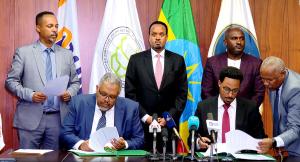
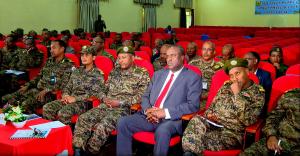
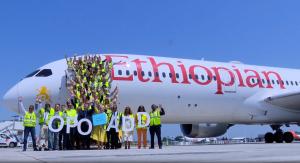
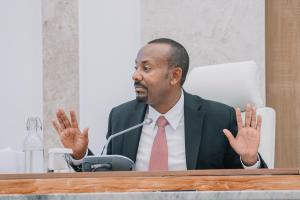
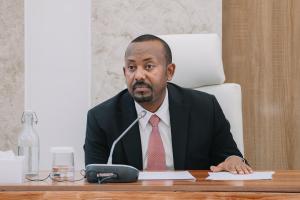




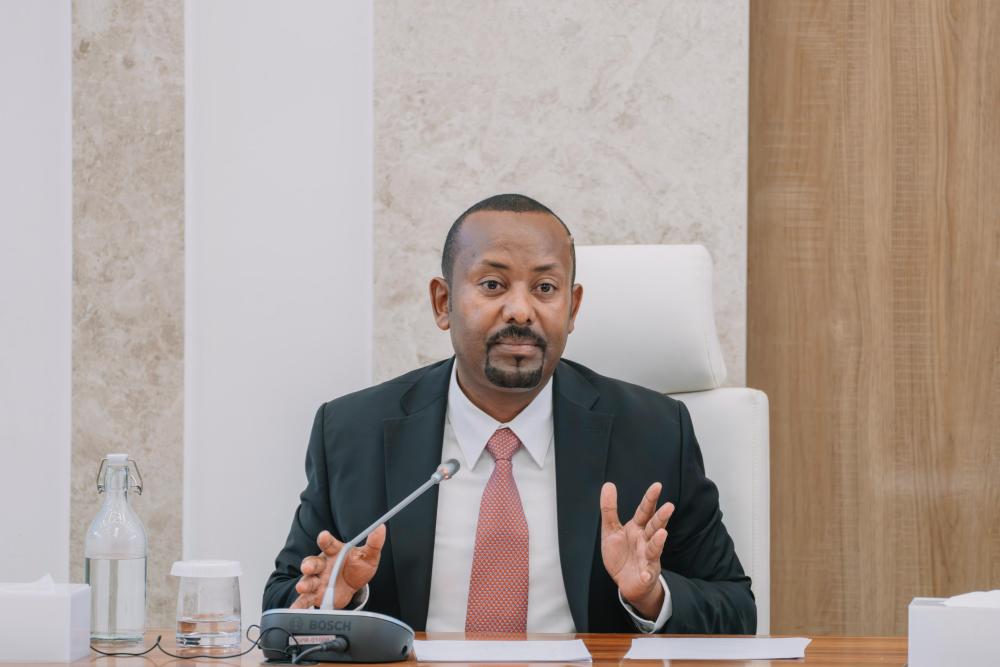

.png)
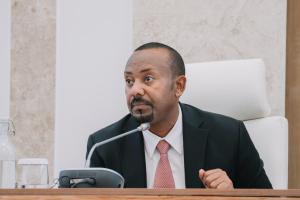
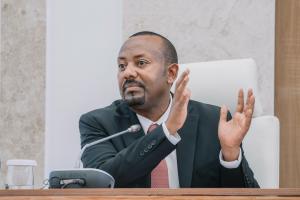
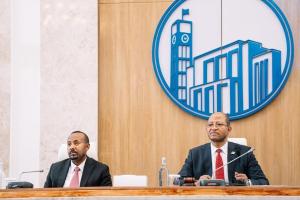
.jpg)
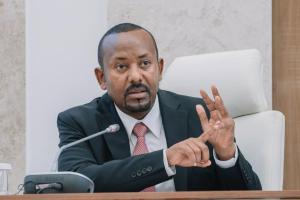

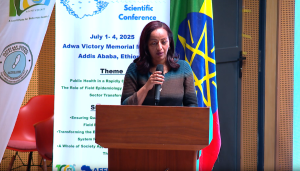
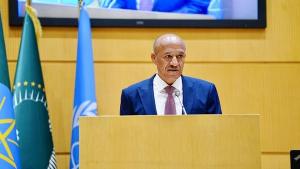


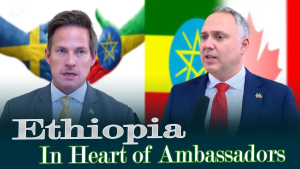
.png)

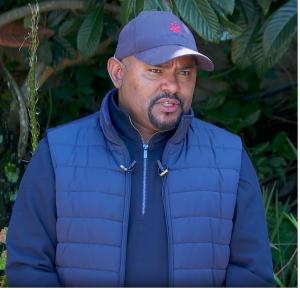
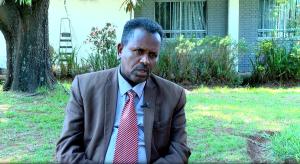
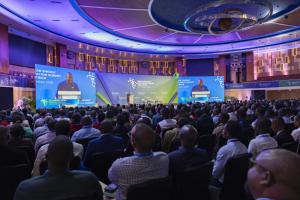
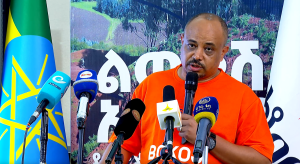
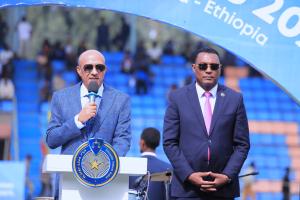



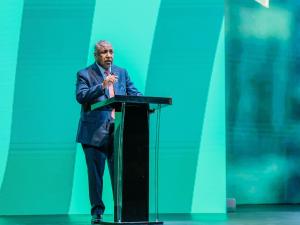
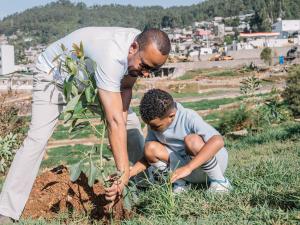

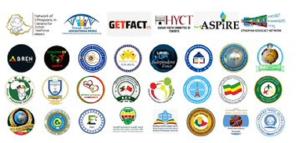

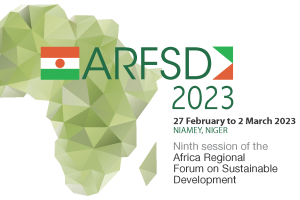
.jpg)
